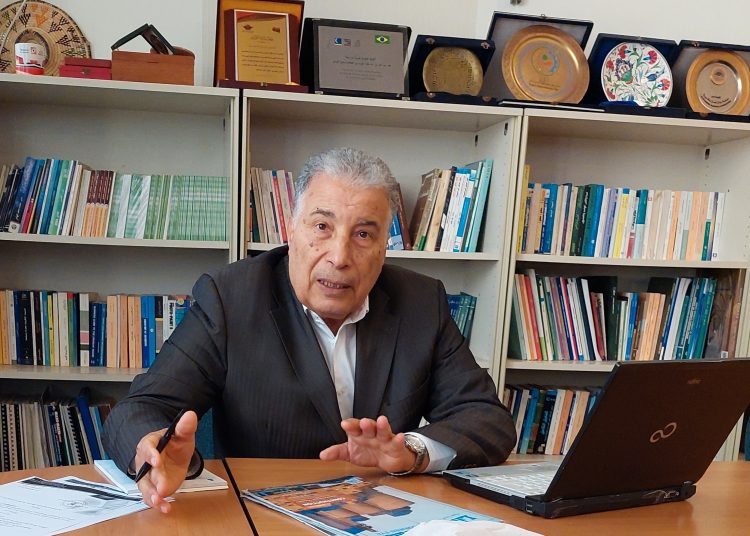The Libyan Business Council (LBC) needs reform, its new caretaker head Bashir Essadi told the Libya Herald during a short exclusive interview at its Tripoli headquarters in Dat Il Imad yesterday.
Essadi was assigned by the LBC General Assembly to run the group for an interim period until the General Assembly convenes and appoints a new permanent head.
Court ruling
The new LBC head took over the running of the private sector business lobby group last week after a court ruling declared that his predecessor Abdalla Fellah’s term in office had long expired. The court cases had been ongoing since 2019, Essadi explained, and had finally ruled at the end of 2021.
Background
Essadi is an electric engineer graduating from Seattle, Washington State and then Daytona Ohio in the U.S.A. He has a long history in government administration, including the nuclear energy department before becoming chairman and CEO of GECOL between 2012 and 2014. He has since run his own water desalination and sanitation company.
No long-term ambitions to run the LBC
The caretaker head insisted he has no ambitions to lead the LBC in the long term. He sees himself as being assigned to do a particular job until his successor takes over. He has been conducting an audit and review of the LBC and hopes to put its house in order.
He is working on a new set of internal rules and regulations and management systems and structures to act as permanent guides for future heads and board members.
He admitted that the LBC needs serious reforming and reinvigoration. He feels it has lost its way and purpose over the last decade.
‘‘The LBC should prepare a vision for the future to be taken more seriously’’, he explained. He admitted it has lost its prestige amongst its members and the successive governments. He also admitted that internal politics and wrangling has weakened it.
But he also fully understands that the general Libyan environment has wakened it. ‘‘The LBC needs a stable long-term government which has a vision’’, he added. He also warned that business has been politicised and some business leaders have become entwined in partisan politics. ‘‘Many are too concerned with trying to please the incumbent government of the day’’, he explained.
Recent price rises and government price setting
Asked to comment on the recent controversy over the role of the state in attempting to fix prices to control price rises, Essadi said price controls should only be used strategically. They should only be used as a last resort safety valve, he insisted.
The government needs a strategy and vision
But he also accused the government of sleeping in the job with regards to food supply shortages and the resultant sudden price rises. ‘‘They have no strategy and vision which has led to price rises’’, he explained. ‘‘The government needs to put in place strategic solutions’’, he concluded.









